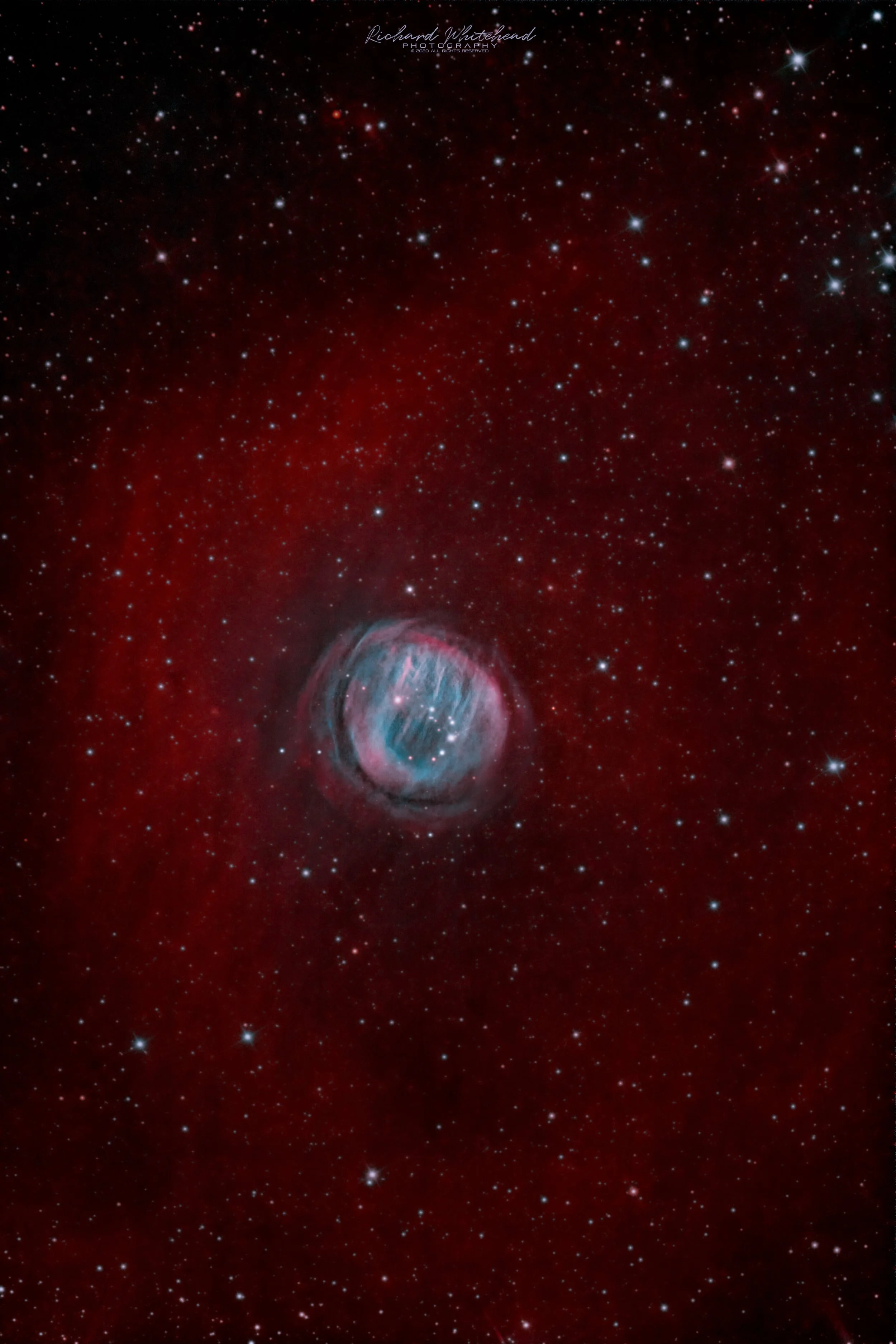The Bear Claw Nebula
Image Description and Details :
The Bear Claw Nebula Sh2-200 is a very low brightness planetary Nebula discovered by Stuart Sharpless and incorporated into his catalog in 1959, although it wasn't until 2017 that it was spectroscopically confirmed as a planetary nebula!Planetary Nebulae are so called because to astronomers in years past, they looked disc-like, like a planet!.They are actually the remnants of a star reaching the end of its life and exploding into space, its outer layers, this will be the fate, one day of our sun.This is a very highly evolved and ancient planetary nebula.Someone has to call these objects, to me it looks more like a snow globe set adrift in a sea of glowing hydrogen ( that's the red background)Another fact that makes this image interesting is the halo of ionized Hydrogen gas that surrounds it. This is thought not to be linked to the planetary nebula, but the result of the extremely hot remnant star at its center ionizing the surrounding interstellar hydrogen.
Tech stuff
Location: Animas, NM
Scope : Planewave CDK14
Mount : Planewave L-350
Camera : ZWO 6200 Mm Pro
HOO Image
Ha (Antlia 4.5nm) 25 x30 mins, OIII (Antlia 4.5nm) 25x30mins
Total Integration time 25 hours
Processed in Pixinsight and PS
Copyright: Copyright Richard Whitehead 2022
AAPOD2 Title: The Bear Claw Nebula
AAPOD2 Page Link: https://www.aapod2.com/blog/the-bear-claw-nebula
Submit Your Photo!


